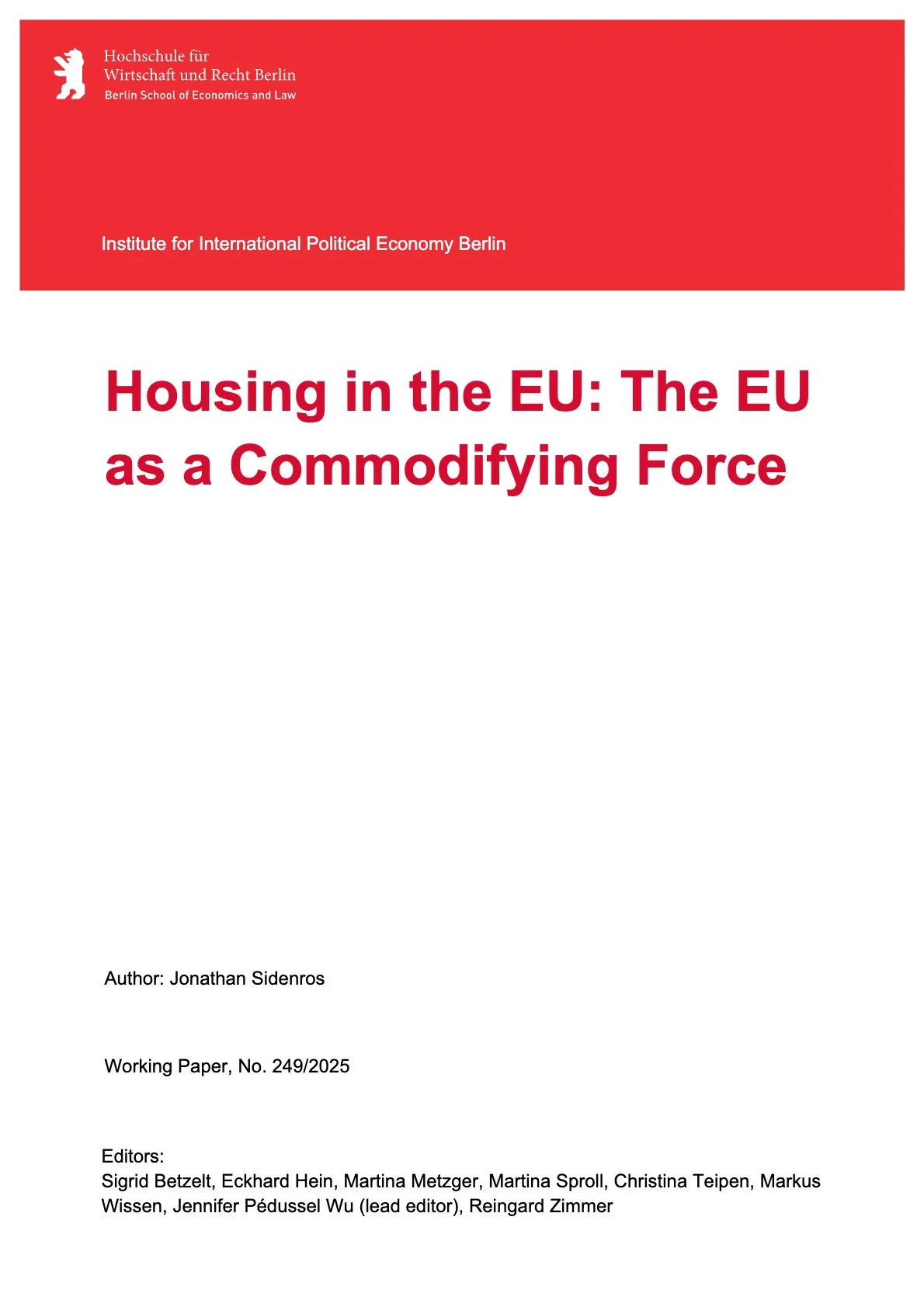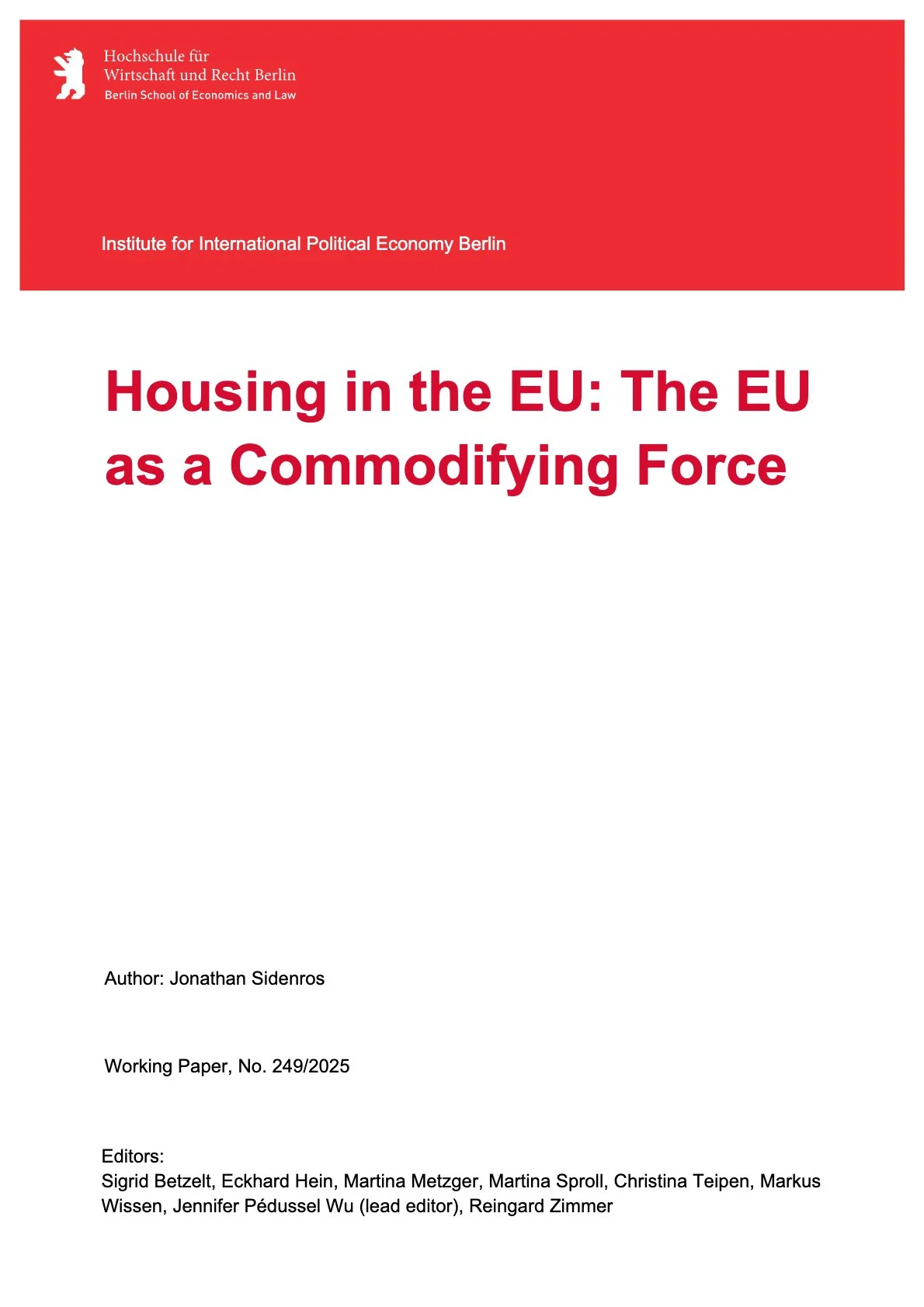AI-Generated Summary
This working paper, published by the Institute for International Political Economy Berlin and authored by Jonathan Sidenros, examines the European Union’s (EU) role in the ongoing housing crisis across its member states. The paper highlights how the EU's policies contribute to the commodification of housing, exploring various mechanisms such as mortgage debt, securitization, and the financialization of rental and social housing.
Context of the Housing Crisis
The EU is experiencing a significant housing crisis, with average rents increasing by 19% and house prices by 47% from 2010 to 2022, far outpacing wage growth. The European Parliament has reported a 70% rise in homelessness over the past decade, indicating that over 700,000 individuals are currently homeless in the EU. This crisis is exacerbated by rising energy costs and inflation, leading to more adults living with their parents and increased gentrification in urban areas.
EU Policies and Housing Commodification
The study utilizes Aalbers' theory of housing financialization and Scharpf's theories of integration to analyze the EU's impact on housing. The findings suggest that the EU has contributed to housing commodification through mortgage market liberalization, fiscal regulations, and competition law. A notable struggle exists between the single market and local housing administration, where EU laws often dominate.
Financialization Trends
The paper identifies four modes of housing financialization: the rise of mortgage debt, mortgage securitization, and the financialization of rental and social housing. The liberalization of mortgage markets, particularly through initiatives like the Capital Markets Union, has facilitated increased access to mortgages but also contributed to rising housing prices, which in turn exacerbates the crisis.
Legal Framework and Social Rights
Despite the EU's commitments to housing as a human right, legal limitations prevent the EU from directly legislating on housing matters. However, the study highlights that the EU holds competencies in related areas, such as mortgage markets and fiscal regulations, which significantly influence housing policies in member states. This contradiction raises concerns about the EU's ability to fulfill its commitments to social inclusion and housing rights.
Impact of Gentrification and Segregation
Gentrification, segregation, and suburbanization are increasing in many European cities, further complicating the housing crisis. EU policies have often prioritized market interests over social commitments, leading to spatially exclusionary processes. The Urban Agenda introduced in 2017 aims to combat housing exclusion and emphasizes housing as a universal right, although its effectiveness remains to be seen.
Future Directions
The paper argues for a potential shift toward de-commodifying housing policies within the EU, as commitments to housing rights exist in various treaties. The emerging Urban Agenda and funding initiatives through the InvestEU program signal a possible move toward addressing the housing crisis in a more socially responsible manner. This study provides a comprehensive overview of the interplay between EU policies and the housing crisis, emphasizing the need for a more integrated approach to address housing as a critical component of social inclusion and economic stability within the EU.

